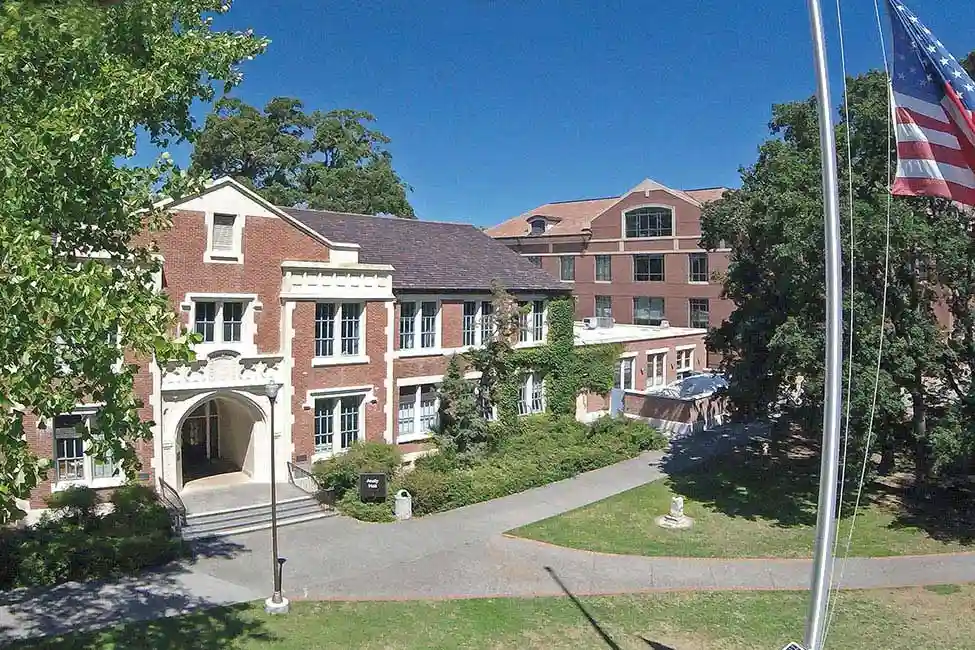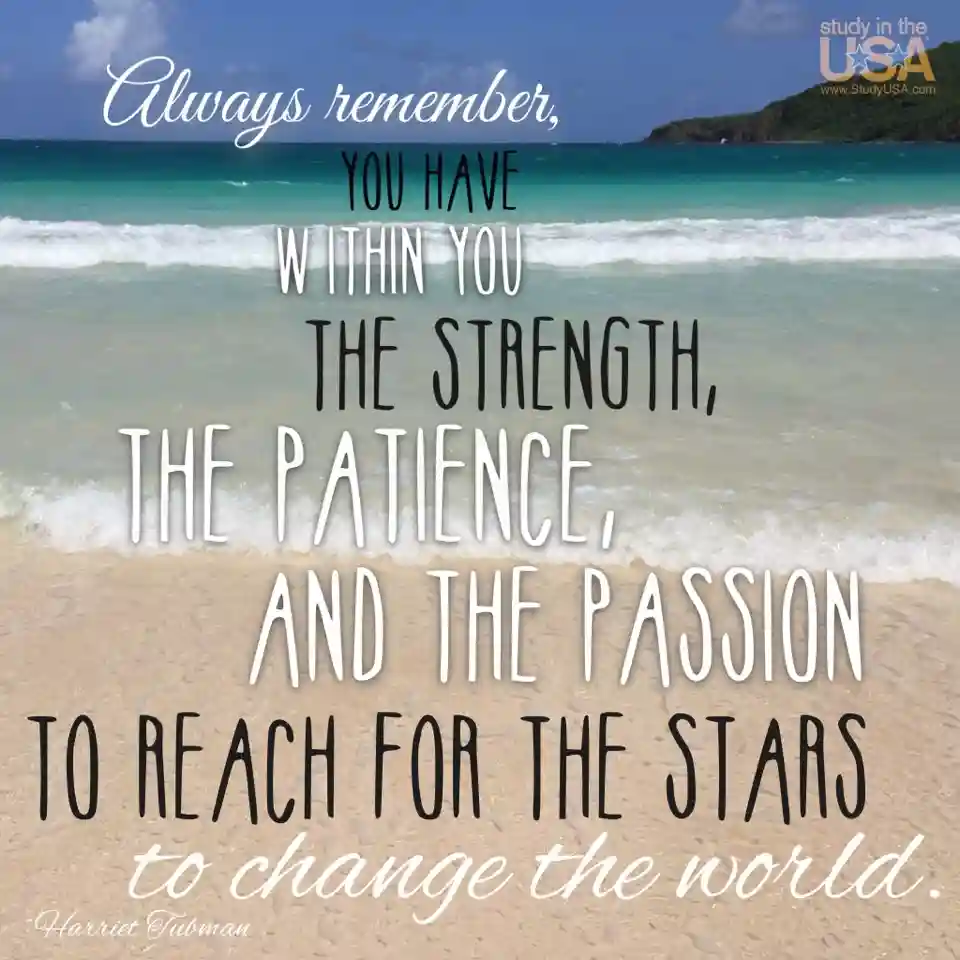Transferring from a Community College: 2 + 2 Agreements

Many American students –and 90,000 international students—attend a community college for the first two years of university studies. With nearly 1,200 community colleges in the country, there are many benefits of this model in comparison to studying all four years at a university. Community colleges offer significantly lower tuition, smaller classes and strong student support. For students who plan to earn a bachelor’s degree, the transition from community college to the university for the final two years can be quite easy.
This plan is popularly known as the “2 + 2 model.” These programs are officially called "Articulation Agreements." A bachelor’s degree in the U.S.A. is a minimum of four years. In the end, the diploma will only list the university which awards the bachelor’s degree.
2 year community college + 2 years at a university = 4 years (bachelor’s degree)
International Transfer Fairs
Many community colleges host "transfer fairs" so their students can learn about opportunities to earn a terminal degree at a four-year university. These bachelor's degrees are essential for finding a job or entering post-graduate programs anywhere in the world. At these fairs, usually held in a school auditorium on campus, students have a great opportunity to talk to admissions representatives from prestigious universities around the country.
Years ago, the Seattle Community College District decided to provide more partnerships and pathways for international students to transfer out of Washington State to places like California or New York. We established International Transfer Fairs and began inviting out-of-state universities to come and recruit the outstanding international students in the District into Year 3 and 4 at their universities. This program has grown tremendously in popularity and now more than 100 universities apply to come to the fairs.
Several other community colleges in the region have joined so the fairs can draw even more universities to a multi-day event. Admissions representatives from many of the University of California schools (Berkeley, Davis, Santa Barbara, etc.) attend, as well as Rutgers, Columbia University, the Johns Hopkins Carey Business School, University of Wisconsin, and many others.
-Courtesy, Seattle Community Colleges
Transfer Admission Guarantee (TAG)
One of the most successful initiatives for the SCCD to attract and support students is the TAG (Transfer Admission Guarantee) model.
Currently the SCCD has 13 TAGs, and several more are being negotiated. International students can choose from the universities listed on the SCCD application forms, and they will receive a letter from the university along with the Seattle Community Colleges admission documents.
The university TAG letter is addressed to the student applicant and guarantees this student admission upon completing the Seattle Community Colleges’ Transfer Degree with a specific grade point average (GPA) along with occasionally a TOEFL requirement or specific coursework. The letter typically does not guarantee admission to the most competitive majors. The GPA required to guarantee transfer ranges from 2.0 to a 3.5 on a 4.0 scale.
One of the SCCD’s partners in this initiative is the Johns Hopkins Carey Business School (JHCBS). JHCBS is looking for the best and the brightest community college transfer students to join the Bachelor of Business Administration (BBA) degree completion program. In addition to the completion of all required pre-requisite courses and at least 60 credit hours (or 90 quarter hours), the Carey Business School requires a 3.5 GPA as evidence of academic achievement and ability to be successful in this challenging program.
The BBA degree, as well as, MBA and specialized Master of Science programs are offered at the Johns Hopkins Washington, D.C. Center. Students transferring to the Carey Bachelor of Business Administration degree completion program will study International Business.
After transferring to the Carey Business School, students will complete an additional 60 semester hours of upper level undergraduate coursework. Included in the program are courses as diverse as Behavioral Finance; International Marketing Strategy; Ethics, Governance and Accountability; and Teamwork and Diversity in a Global Environment. Students will also take Professional Development courses offered by Career Services and Friday Seminars which include speakers on topics related to classes and skills such as Advanced Excel.
‘The best thing about the program is engagement between faculty, staff, and students. The small classes allow us to interact directly with our professors and a diverse group of students. The staff and faculty are supportive and helpful and there are increasing opportunities for co-curricular involvement.’ -Anastasia Inez, from Indonesia
“The interaction between professors who challenge students to reach higher and strive harder and students from different backgrounds and ethnicities increases the value of the education we are receiving and prepares us for our future after graduation. The program is fully meeting my expectations for a Johns Hopkins education.”
-Christian Gwebordo, from Ghana
A GPA of 3.5?
Parents and prospective students often ask how most international students perform, or in other words, how accessible is this 3.5 GPA? Of course, every student is different and is more or less prepared to study in higher education in the U.S.A. We find the best students make use of our free tutoring services and make appointments with their instructor if they don’t understand something in class. The best students know that an American classroom is an interactive place and students are expected (and often graded) to participate actively in class. The bottom line: international students in the Seattle Community Colleges average a 3.4 GPA.
So, yes, the 3.5 GPA to attend Johns Hopkins Carey Business School is very attainable. TAG partnerships are created to provide students an opportunity to save money on our community college tuition and still transfer and graduate from a top-ranked university.
Andrea Insley, Ed.D. is Executive Director, Global Initiatives, Seattle Community Colleges
North Seattle College
Seattle Central College
The Seattle Community College District, comprised of North, Central and South Seattle Colleges, enrolls 50,000 local students and more than 3,800 international students. Approximately 90% of the international students are planning to do the 2 + 2 model. In general, they choose to do either an Associate of Arts degree or Associate of Science degree – and then transfer to a university to complete a Bachelor of Arts or Bachelor of Science degree.
Whether students choose to study the arts or sciences degree depends on what they want to “major” in – the “major” is the primary focus of their study in the final two years. During years 1 and 2, students at universities or community colleges are studying “General Education” which includes a wide variety of humanities, social sciences, and natural science courses. In addition, students take some foundation courses to prepare for their major.
The Seattle Community College District (SCCD) has one of the largest enrollments of international students in the U.S.A. Our colleges offer outstanding linkages with universities for students to easily transfer and complete the bachelor’s degree. The SCCD has articulation agreements with all of the universities in Washington State, some of which are highly ranked. The University of Washington, for example, is a popular choice for many students with its Seattle, Bothell and Tacoma branches.
Travis
Get matched to the best program for you
Let us know what you're looking for so we can find the best school for you.
Useful Articles
Check Out These Schools


Santa Rosa Junior College
$10,000 — $15,000 Year

Foothill College / De Anza College
$5,000—$10,000 Year
Start your U.S. adventure with Study in the USA

Learn About U.S. education financing, housing, and more
Resources
Learn about American culture and education direct from our experts at Study in the USA. Read more
















